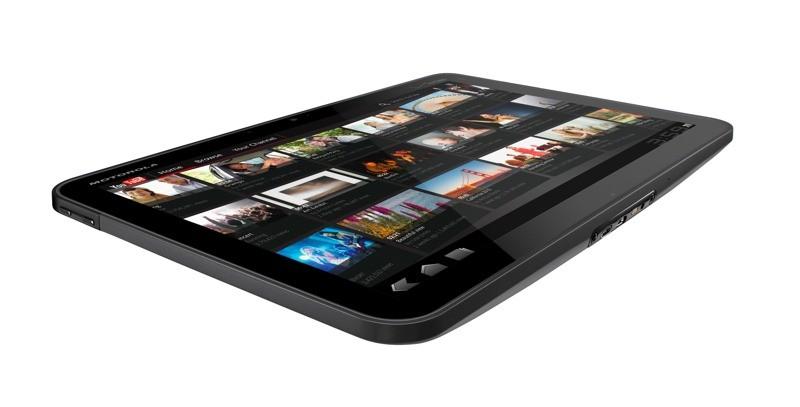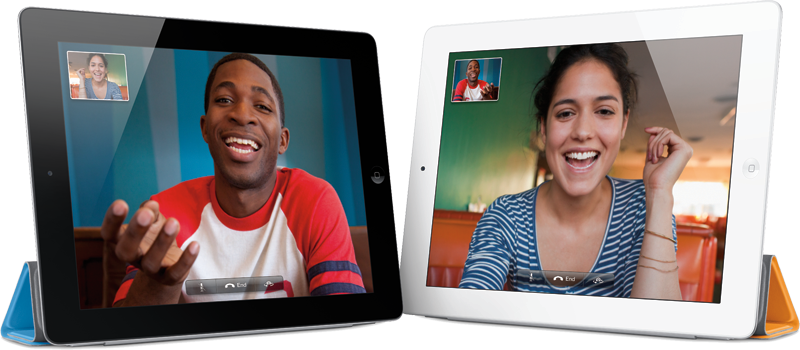Motorola's iPad-rival "Xoom" tablet sales slashed to 100,000 units
The Xoom has been hampered by a high initial price, low build quality, hardware features that were missing or nonfunctional, operating system and bundled software that was incomplete and unrefined, a scarcity of tablet-optimized applications and what appears to be a general absence of interest in tablets outside of the iPad.
Original estimates suggested Motorola would sell between 3 to 5 million units in 2011, a rate that would require as much as ten times the sales that analysts have estimated over its first two months. Instead, Motorola has reportedly sharply reduced its production orders as it evaluates demand.
In contrast to the estimated 100,000 Xoom units sold in its first two months, Apple sold 300,000 iPads on its first day of sales last year. In the final quarter of 2010, the company sold 7.33 million iPads, or about 2.4 million per month. The company is expected to announce official iPad sales figures for its most recent quarter of earnings later this month.
Apple was reported to have built around 2 million iPad 2s in preparation for launch, and is now estimated to be producing around 2.5 million units per month, with "conservative estimates" saying that Apple will begin producing 4 to 4.5 million per month to meet a growing demand that is outpacing last years'.
iPad enthusiasm fails to raise tide for other boats
While the original iPad was initially estimated to have limited sales prospects and was widely panned as being "just a big iPod touch," the unexpectedly high demand it generated in the market was immediately expected to spill over onto similar devices from competitors, including Dell's Streak and Samsung's original Galaxy Tab, both of which debuted as smaller 5 to 7 inch devices last year.
However, Apple's chief executive Steve Jobs predicted last October that such devices would fail in the market because they could not offer a clear advantage over smartphones, while also failing to provide enough screen real estate to support a real tablet experience.
Jobs also predicted that companies would abandon the 7 inch form factor this year, which both Motorola and Samsung have already done. Samsung announced a 10.1 inch version of its Galaxy Tab at February's Mobile World Congress, but then returned to the drawing board after the release of iPad 2, admitting that its first design was "inadequate." Samsung now hopes to deliver a Honeycomb tablet in June.
Honeycomb buzz suffers colony collapse disorder
Motorola's Xoom was first to market with Google's Android 3.0 Honeycomb operating system, the initial version of Android specifically designed for tablets. The Xoom was originally billed as being significantly faster than iPad, capable of running Adobe Flash, and promoted as having a more engrossing 3D user interface, complete with video conferencing capabilities the original iPad lacked.
However, the subsequent release of Apple's iPad 2 erased Xoom's speed advantages, added FaceTime cameras and undercut it on price, while Android's delayed, experimental support for Flash is still not able to deliver reasonable performance even for web videos, let alone the majority of Flash content that was originally designed to work on full power Windows PCs equipped with a mouse.
Google's Android 3.0 Honeycomb platform has also handicapped iPad competitors with unfinished edges such as a lack of HTML5 web savvy and a paucity of polished first or third party apps comparable to Apple's own Pages, Keynote, Numbers, iMovie and Garage Band and the more than 65,000 other third party iPad-optimized apps now available.
The openness of Google's Android platform has also distracted customers from getting a clear picture of what Honeycomb tablets actually represent. Prior to Google even finishing its tablet-oriented release, Android licensees such as Dell and Samsung began offering tablets running Android 2.2 Froyo against Google's recommendations, resulting in hardware with clear disadvantages and lacking an ability to upgrade to the planned 3.0 release. Google has since suspended access to Android 3.0 source code to prevent further unanticipated use of its formerly open source code.
Motorola's false start with the Xoom threatens to blight the outlook for Honeycomb tablets in advance of a series of similar offerings from Samsung, Acer and Toshiba expected to hit this summer. LG is also rumored to be partnering with Google to deliver a "Nexus" branded tablet that may divert attention away from other Honeycomb tablets in the same way that Microsoft's Zune destroyed the market for PlaysForSure media players, and as its Nokia partnership may likely starve initial interest from other competing Windows Phone 7 devices.
A high profile failure for Motorola's Xoom could poison the well for subsequent Honeycomb tablets much the same way that the failure of initial Google TV appliances from Sony and Logitech appears to have erased the prospects of mass consumer demand for an Android-based set top box.
Bleak outlook for tablets outside of iPad
Deutsche Bank analyst Chris Whitmore warned in a note yesterday that "iPad challengers must either undercut on price (negative margin implications) and/or offer a superior user experience," and said his firm's tablet estimates remain below consensus "due to our concerns that non-iPad tablets will underwhelm."
Whitmore also announced slashed PC growth estimates, from initial 9 percent year-over-year growth in 2011 to just 4 percent, primarily due to weakness in the consumer market due to cannibalization by smartphones and iPads.
"We believe weak end demand in Europe and the U.S. is directly related to pressure from both the iPad and smartphones, where consumers continue extending the lives on existing hardware," Whitmore wrote. "On the other hand, corporate demand remains healthy with no signs of a slowdown as the upgrade cycle continues unabated."
He added that it "appears that iPad cannibalization [of PC sales] is tracking above our original 30% cannibalization estimate. As discussed in prior research, Apple remains the primary beneficiary of this technology transition which is increasingly coming at the expense of PC vendors (Acer, HPQ, etc)."
 Daniel Eran Dilger
Daniel Eran Dilger















 Amber Neely
Amber Neely
 Thomas Sibilly
Thomas Sibilly
 AppleInsider Staff
AppleInsider Staff
 William Gallagher
William Gallagher
 Malcolm Owen
Malcolm Owen
 Christine McKee
Christine McKee










172 Comments
Ah, Deutsche Bank, thanks for the opportunity for some good ol' schadenfreude, mit schlag.
I consider this DOA QED. No surprise. All the competitors are competing against laptops and desktops as opposed to competting against the iPad. This is evident when you consider that they are all hell bent on promoting specks and complexity where as the iPad is about simplicity and doing basic tasks well and very fast. Putting one of those tablets up against a laptop or desktops an instant failure since most people already have one of those devices and more than capable.
I'm seeing a lot of average non techy types asking me about the iPad and going out and buying them....never ONCE do they show any awareness that there are competing devices to consider, it's truly amazing, I've never seen that happen with any device. I think the carnage is going to catch everyone by surprise at how big they all fail.
Wow, that's some real impressive figures there. 100,000 is how many iPads Apple sold yesterday probably.

This confirms my claim that we shouldn't be giving so much attention to these non-iPad tablets, these things are extremly over-hyped, very few people are buying them, there's no comparison and iPad is just in another league.
Android? No Interest! Let me know when Apple has an announcement about it's sales.